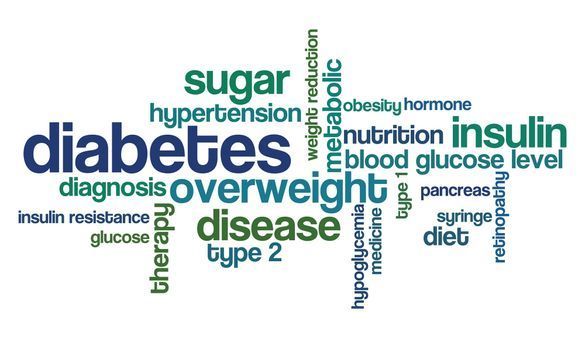DIABETO-ENDOCRINOLOGY IN COPPET
Diagnosis and treatment of diabetes.
Dr André Berger uses new techniques to improve the daily lives of patients suffering from diabetes.
Diabeto-Endocrinology
Treatment of endocrine pathologies and diabetes
Endocrinology
Endocrinology is the medical speciality that deals with diseases of the glands and other organs that secrete hormones. These substances, most often derived from cholesterol, can be considered as the conductor of the living world by serving as a relay and inducing, most of the time, a cellular action at a distance from the place of its synthesis and secretion. Hormonal dysfunction can be due to both an excess and a deficiency. The most common endocrine disease is diabetes (see below).
Endocrine diseases affect the endocrine part of the pancreas, the thyroid, the hypothalamus-pituitary axis, the adrenal glands, as well as the sexual glands. In the CMCN's medical practice, all the pathologies relevant to this speciality (diabetes mellitus and insipidus, hyper- and hypothyroidism, hypothalamic-pituitary insufficiency, adrenal damage, prolactinoma, acromegaly, delayed puberty and/or growth, hypogonadism...) are diagnosed and treated.
The diagnostic approach of the endocrinologist is first to demonstrate a lack or excess of hormones on the basis of blood and urine tests and then to correlate the symptoms with the results found. Subsequently, imaging examinations are often indicated to determine the precise location of the pathology and thus be able to propose the most appropriate treatment. The analyses and imaging tests are carried out in the laboratories and radiology centres of the region.
By extension, the endocrinologist also manages weight problems, those linked to ageing (chronic fatigue, muscle loss, etc.) and those linked to phospho-calcium metabolism (osteoporosis in particular). The diagnosis and treatment of dyslipidaemia (cholesterol) and arterial hypertension are also part of the speciality's field.
Practical information
022 960 11 45
9Place des Perrières 3,
1296 Coppet
Opening hours of the medical practice :
From Monday to Friday: 08:00 to 17:00.
Diabetes
Diabetes, described by the WHO as a global scourge, is a chronic disease that can rarely be cured but can be treated and controlled. It is the most common endocrine disease caused by a lack or defect of insulin produced by the pancreas. This hormone allows carbohydrates (sugar) to enter the cells and be used for energy.
There are different types of diabetes, including pre-diabetes, type 1, type 2, gestational (or pregnancy) diabetes and other rarer types.
The two main forms of diabetes are
Type 2 diabetes is the most common and mainly affects sedentary, overweight people. It is a relative lack of insulin. Insulin is produced but cannot act on the target cells (there is peripheral resistance to its action).
Type 1 diabetes is less frequent and affects younger people of normal weight. In this case, there is an absolute lack of insulin due to damage to the specific secreting cells of the pancreas.

When diabetes is diagnosed, treatment consists first of optimising lifestyle (especially in the case of type 2) combined, depending on the degree of the disease, with either oral or subcutaneous anti-diabetic drugs or even insulin. Type 1 diabetes is always treated with insulin.
New technologies have recently emerged for both the diagnosis and treatment of diabetes. For example :
long-acting insulins.
external pump administration
feedback control by coupling an external pump with a CGMS (Continuous Glucose Monitoring System);
systems that allow continuous blood glucose measurement without the need to draw capillary blood from the fingertip (Freestyle); etc.
All these new techniques are used and implemented in the CMC Nyon's diabetes practice.

